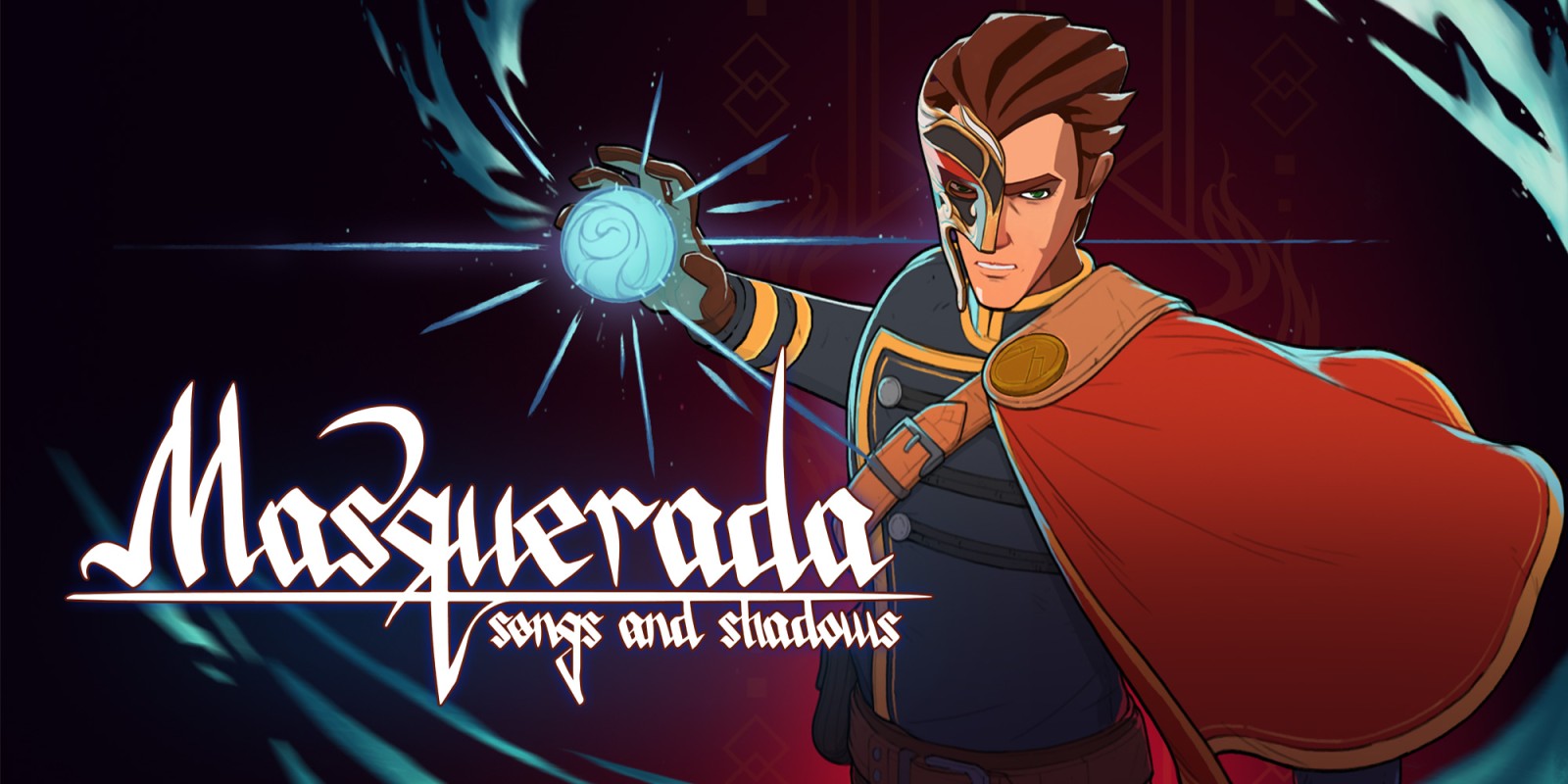Masquerada: song of shadows looks enticing at first glance. It’s got a beautiful art style and a wonderful cast of voice actors at its disposal. It’s unfortunate then that a game with so much promise, handcrafted by a team of fewer than twenty people, falls flat in the two areas that matter most to RPGs: combat and story. 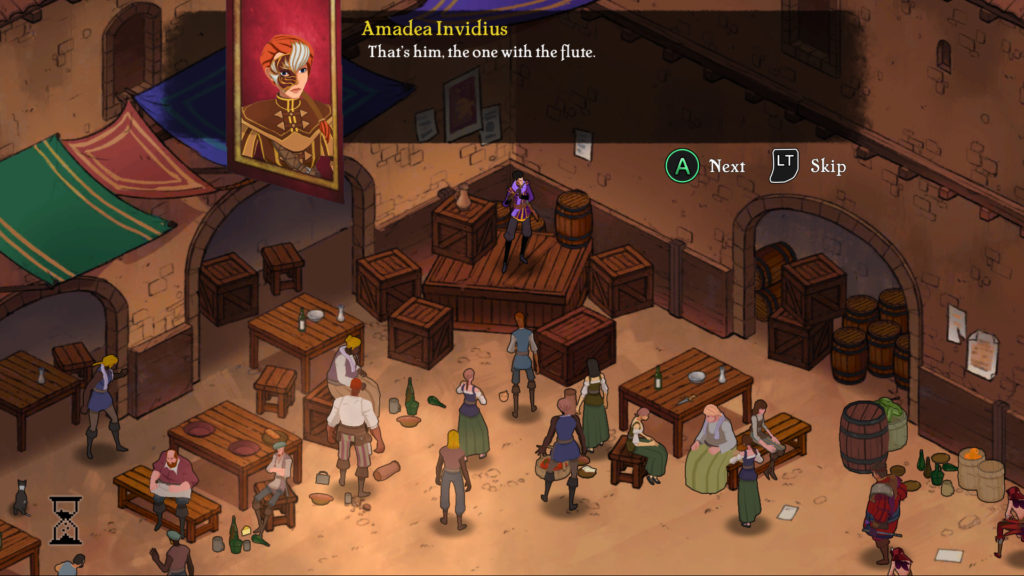
The opening story beats of Masquerada are serviceable enough; there’s a missing person or person(s) that captures our protagonist’s attention. This serves as the catalyst to move the events of the plot forward. However, the real meat on the story chops don’t come from the story’s main thru line, but from the lore discovered by the player. While many will no doubt enjoy pouring over every detail of each codex entry, I found the amount of content overwhelming, far outweighing the value it added to the world
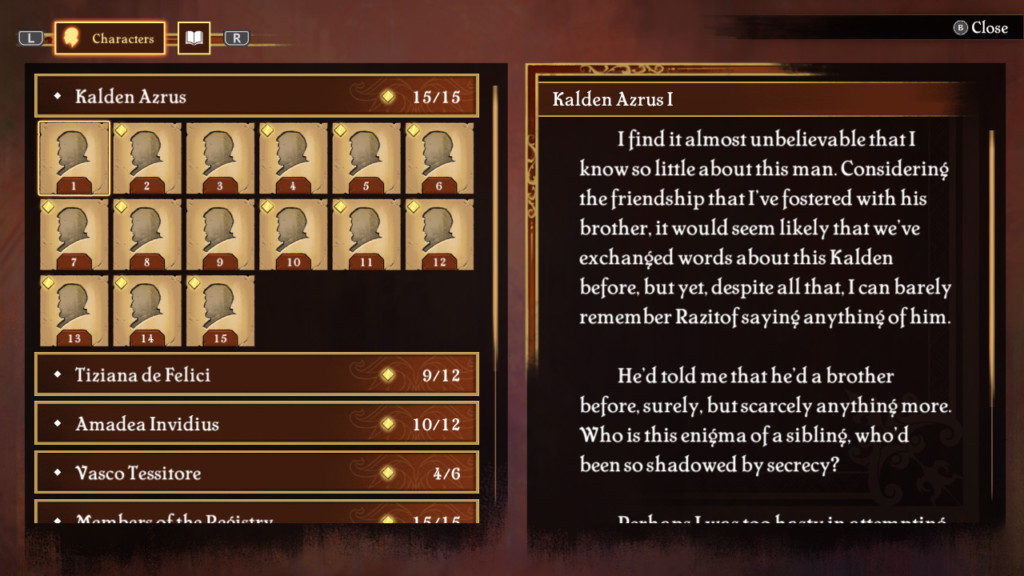
Much like all of those books I never read in Skyrim, I found that it was neat to check in and read an extra blurb from time to time in the Masquerada codex, but I soon grew tired of reading. This was exacerbated when the amount of text ballooned to several pages for many entries. It’s not that the lore of Masquerada is uninteresting. I mean, the main premise: masks in this world (in addition to looking cool) imbue supernatural powers to their wearers is pretty neat. On top of this, the world is beautiful and the characters are well acted, yet the game seems more preoccupied with throwing as much mythology at the player as possible instead of making the games main story more enticing and really capturing the player.
As it stands, the story is serviceable, but the combat is disengaging. Sadly there’s just not much to enjoy about the RPG mechanics to here. The camera is positioned at an isometric angle above the characters giving the player a solid perspective from which to swap between party members at will. If you don’t wish to babysit each character individually you can even set default behaviors for AI controlled party members. As with most real-time RPGs, this is handy when you have a healer that you want to actually heal or a tank that needs to draw agro for the party to survive. The real shortcoming though is that taking control of any of the characters feels ineffective and boring.
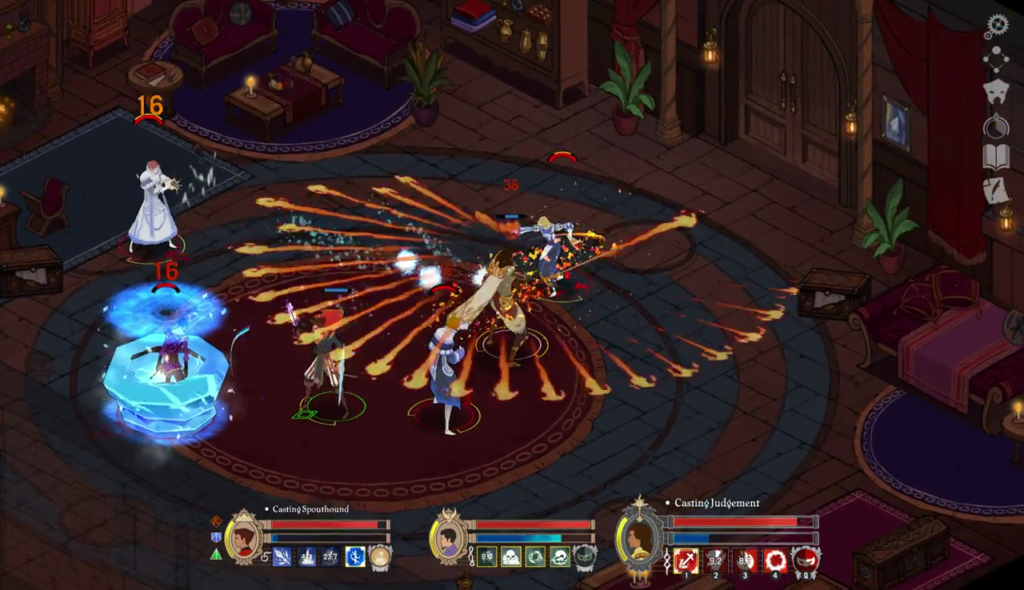
While the basic attack for any character is automatically performed by standing close to an opponent, any attack can be made more effective by targeting an opponent’s weak spot. This is done by moving around the opponent in an attempt to flank their back or sides for extra damage. Aside from flanking, the primary way to trounce opponents is to take make use of each character’s special ability in your party. Each character has an ability that can be assigned to them and used on cooldown. Most of these are pretty straight forward like throwing a fireball or healing a teammate, but some are a bit more creative like summoning aid mid-battle.
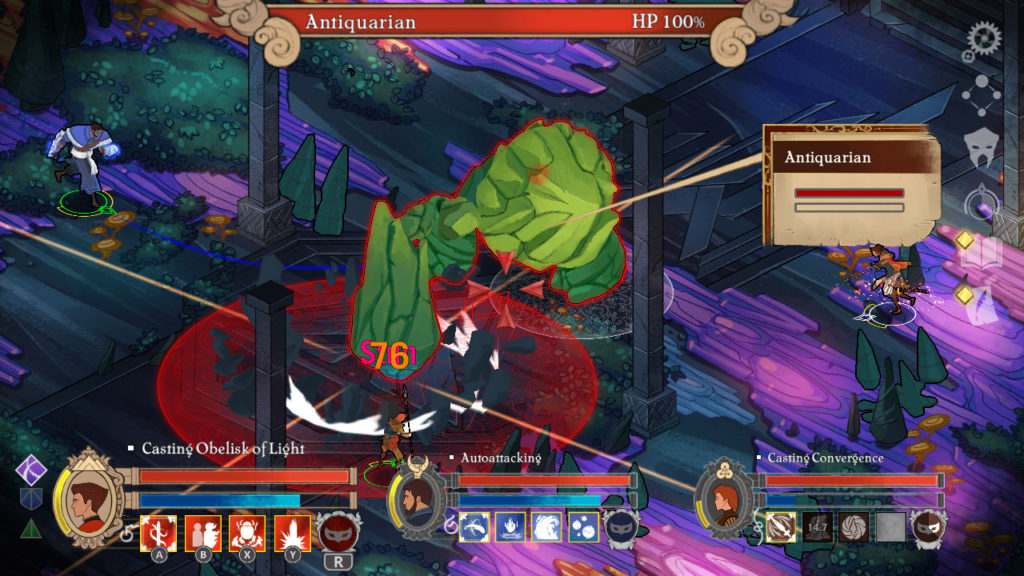
Overall anyone that’s ever played a real-time RPG will be familiar with the combat here. It doesn’t do anything new or exciting, which is alright. What’s not alright is that the things it does are altogether uninteresting. Every time I used an ability it felt too underwhelming for me to care. No matter what damage was dealt by the attack, I never found that I cared to use one ability over the other because, in spite of the gorgeous art style, there’s nothing visually stunning about using magic or abilities.
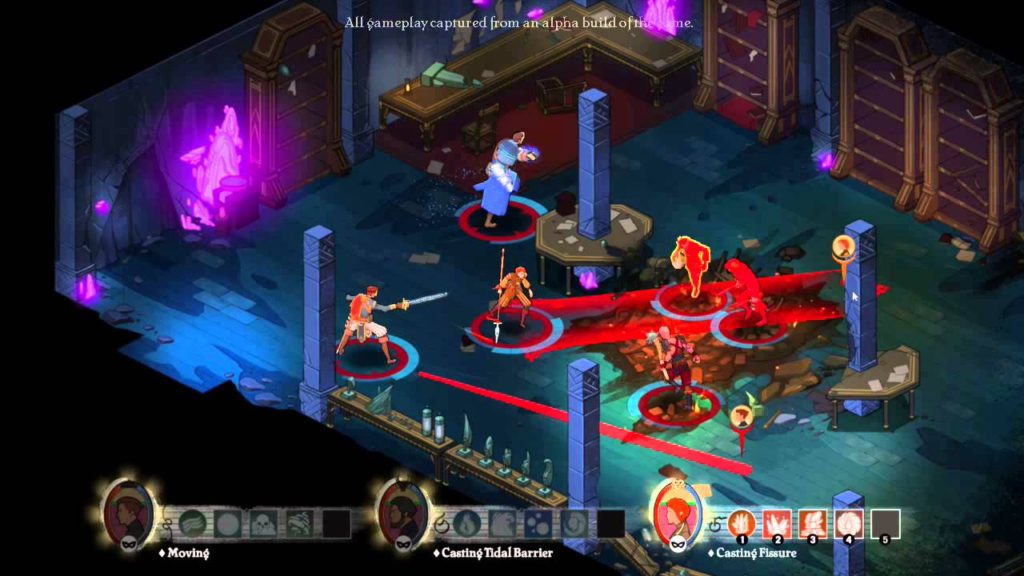
At this point, you’re probably wondering, “So should I play this game”? I think that the answer depends on how much the art style grabs you and how much you like traditional real-time RPGs. I for one love the art style, it’s one of the main attractions for me in any game that I play and it’s what propelled me through Masquerada: song of shadows despite many things dragging the experience down. If you’re here for the real-time RPG combat specifically I’d keep looking. Similarly, if you’re wanting an engrossing story you won’t find it. What you will find is a deluge of world-building lore and codex pages to pour over. So if that’s your thing go for it.
As always, a big shout out to the publisher Ysbryd for providing a review code.

